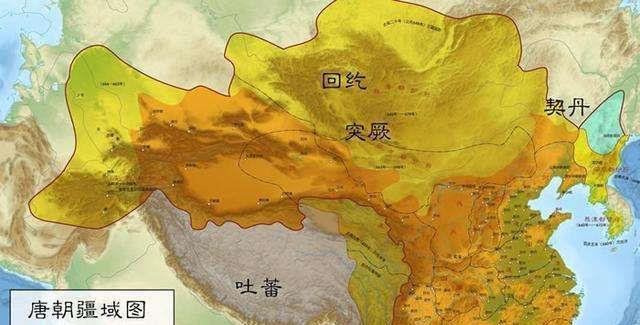For Chinese history, many people hold the concept that after the Tang Dynasty, the Han Dynasty's ability to fight foreign wars was sharply reduced, and while it was unable to eliminate border troubles, it also had records of being destroyed by the Mongols and the Manchu Qing.
Personally, I think:
The growth of foreign regimes
In the Han Dynasty, the two Han Dynasties successively had brilliant records of "sealing the wolf Juxu" and "Yanran Legong", while the Sheng Tang Dynasty had the battle merit of fighting invincible hands all over the surrounding areas, and in the two Song Dynasties, Mo said that the confrontation with the powerful Liaojin was to compete with such a small country as the Western Xia, and the court of the Great Song Dynasty had to send money to the Western Xia while fighting, so as not to let the situation expand.

In fact, this change, to a certain extent, is also related to the growth and evolution of foreign regimes.
The Xiongnu faced by the two Han dynasties were essentially loose tribal states. As early as the Spring and Autumn Period, Sun Wuzi, the grandfather of the Bing family, proposed that the victory or defeat of war should first lie in politics (Sun Wuzi called it "Tao"). The political system of the Han Dynasty can effectively transform all the forces of the empire into war resources, while the Xiongnu are different, the Xiongnu as a loose slave tribal state, the Xiongnu's orders, at best, can play an effective mobilization role in the tribes directly under it, as for the Xiongnu beibu (according to: many Xiongnu beibu, such as the later Xiongnu tribe, belong to the merged tribes) for Shan Yu's orders, most of them have the mentality of not contributing to the work. Therefore, in the contest between the Han Dynasty and the Xiongnu, even if the Xiongnu won, in the face of the "big number advantage", it was still the Han Dynasty that had the advantage.
The Tang Dynasty faced many of the surrounding regimes in the same way.
In the two Song Dynasties, this situation changed.
The opponents faced by the two Song Dynasties, whether it was the Liao or the Jin, were themselves the same feudal regime as the Song Dynasty, and the Qing Dynasty faced by the Ming Dynasty was also a feudal dynasty. This meant that the political superiority of the Central Plains Dynasty at the beginning was wiped out in the face of regimes such as Liaojin, so although Emperor Taizong of Song, Emperor Xiaozong of Song, Emperor Chongzhen and other emperors were eager to "plough the court" against the enemy, in the end, Song Taizong exchanged for the "Battle of Gaoliang River", and Chongzhen reaped the "Salhu Fiasco".
The old and new regimes alternated
However, even if the minority regimes grew into feudal regimes that could compete with the Central Plains Dynasty, it was not easy for one feudal regime to annex another. In the Liao Dynasty, Emperor Shengzong of Liao once marched south to the Northern Song Dynasty, and Yan Liang of the Jin Dynasty also fantasized about pacifying the Southern Song Dynasty in one fell swoop, but in the end, it ended in failure.
And ethnic minority dynasties can overthrow the Han dynasty in the Central Plains, and it still needs the times to be perfected.
Historically, the Mongolian Yuan was able to destroy the Southern Song Dynasty, on the one hand, although the Mongolian Yuan was powerful, but since the reign of Emperor Duzong of the Southern Song Dynasty, the degree of political corruption in the Southern Song Dynasty was far greater than in the past, and political corruption affected the military, so it was reasonable for the Southern Song Dynasty to perish.
The same was true of the Manchu Dynasty. During the reign of the Chongzhen Emperor, the Manchu Qing belonged to an emerging regime, and the Ming Dynasty at this time, after more than two hundred years of development, had been reduced to the point of decay to the point of collapse at a touch, so the final result of fighting decay with emerging was to replace decay with emerging.